April 29, 2024 | 06:50 GMT +7
April 29, 2024 | 06:50 GMT +7
Hotline: 0913.378.918
April 29, 2024 | 06:50 GMT +7
Hotline: 0913.378.918
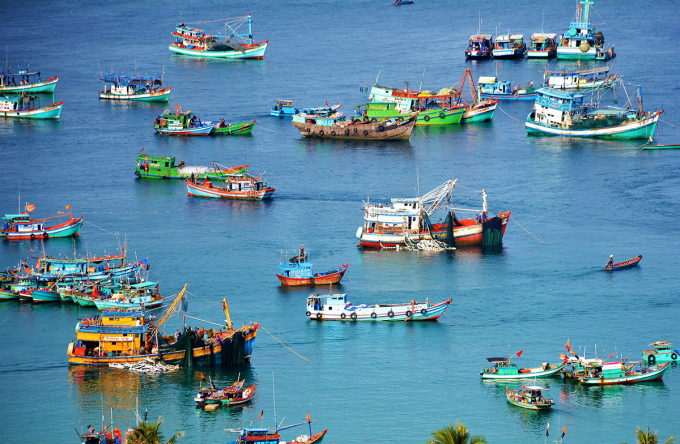
The Ministry of Agriculture and Rural Development reports on the results after 2 years of implementing Decree No. 42/2019/ND-CP stipulating penalties for administrative violations in the fisheries sector.
The Ministry of Agriculture and Rural Development reported on the results after 2 years of implementing the Government's Decree No. 42/2019/ND-CP dated May 16, 2019 on penalties for administrative violations in the fisheries sector. Accordingly, the General Department of Fisheries (Ministry of Agriculture and Rural Development) and the regional fisheries surveillance force under the Fisheries Control Department detected and handled 627 cases of administrative violations with a fine of over 2 billion VND.
The Ministry of Defense detected and handled 2,198 violations with a fine of over 54 billion VND, handed over 15 fishing vessels violating foreign waters to the People's Committees of the provinces for consideration and handling according to their competence.
In localities, after over 2 years of Decree No. 42/2019/ND-CP implementation, there have been positive changes nationwide, the state management of ministries, branches and localities has gradually improved. To maintain order, most administrative violations were detected and promptly sanctioned to ensure proper authority, order and procedures as prescribed by law.
However, administrative violations are still very complicated, mainly with activities such as: illegal fishing; using electric pulses and electric stimulation for fishing; producing and trading in products used in aquaculture that are not of good quality and unclear origin; no Certificate of eligibility for production and rearing of aquatic breeds, feeds, environmental treatment products in aquaculture, etc.
The penalties of administrative violations for these activities in practice often faces many difficulties due to the reaction of violators, resistance or indifference, failure to comply with the decision, cases where violators only complying with the decision to impose a fine without complying with remedial measures.
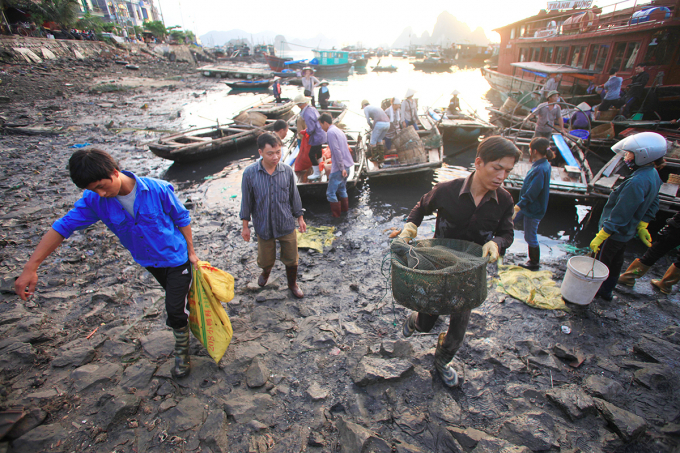
After over 2 years of implementing Decree No. 42/2019/ND-CP, administrative violations in the fisheries sector are still very complicated.
Over the past 2 years, 8,810 violations have been detected and fined with VND 83.1 billion. Specifically, the fisheries sector detected and handled 7,095 cases with a fine of over VND 68.2 billion.
The aquaculture sector detected and handled 209 cases with a fine of more than VND 2.23 billion. Regarding the use of electric pulses and explosives for fishing, 1,056 cases were detected and handled with a fine of more than VND 12.6 billion.
According to the Ministry of Agriculture and Rural Development, the organization of penalizing administrative violations in the fisheries sector in the past two years has encountered difficulties and problems due to many reasons.
One of them being annual funding for inspection, examination, patrolling, control and handling of administrative violations in fisheries sector is limited, only meeting a small part of the operational needs.
Means of carrying out fishery monitoring are lacking, outdated, old, and do not meet the requirements in the large sea area, complex terrain, while law enforcement forces protecting aquatic resources are lacking, they have not been regularly trained and fostered, so they still have limited skills in handling and performing tasks.
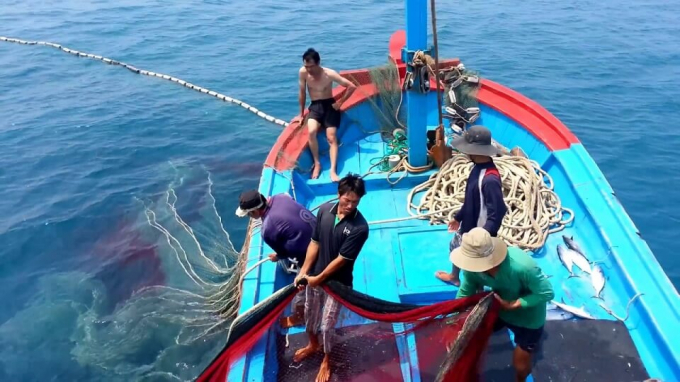
Organization of penalizing administrative violations in the fisheries sector in the past 2 years encountered many difficulties and obstacles.
Facilities at the unit such as temporary detention locations of fishing vessels, warehouse for storing evidences of administrative violations, etc., have not been arranged and equipped according to regulations, so it is very difficult to apply necessary preventive measures such as impounding fishing vessels and material evidences of violations to ensure the execution of decisions on penalizing administrative violations in accordance with law.
Due to the impact of the market economy, the decline of fishery resources,administrative violations has become more and more complicated with more sophisticated tricks in social life, so many new violations not specified in Decree No. 42/2019/ND-CP have appeared.
According to Deputy Minister of Agriculture and Rural Development Phung Duc Tien, Decree No. 42/2019/ND-CP still has shortcomings and lacks consistency with the Fisheries Law and other relevant laws.
Some penalties are not feasible, and many violations have not been codified in practice. The penalizing competence has not closely followed the functions, tasks, competence and scope of activities of each force related to the fisheries sector and to handle violations in the fisheries sector as prescribed in specialized laws.
Accordingly, the Ministry of Agriculture and Rural Development has made recommendations and proposed to add a number of violations to the draft Decree to replace Decree No. 42/2019/ND-CP.
Specifically, act of “Not carrying the original or a certified copy of the Certificate of registration for fishing vessel; technical safety certificate of fishing vessel; fishing vessel registration book; insurance for fishing vessel crew when operating at sea”, to facilitate and be consistent with the practice of inspecting, controlling and handling violations, and at the same time ensuring the operating conditions of fishing vessels.
Act of “not carrying a certificate of eligibility for food safety as prescribed” for a fishing logistics service ship because according to the Fisheries Law, this is a violation of fishing illegal.
Acts of “not carrying a fishing license or an expired fishing license for fishing vessels with the largest length under 24 m” and “not carrying a fishing license and safety certificate for fishing vessel techniques” under Articles 23 and 33 of the draft Decree replacing Decree No. 42/2019/ND-CP.
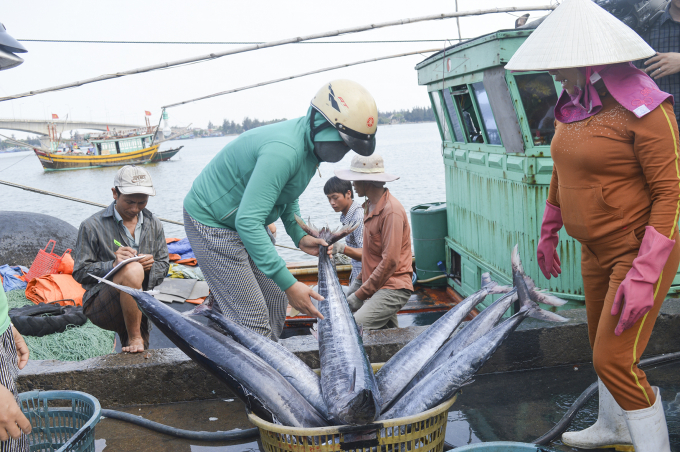
According to the Ministry of Agriculture and Rural Development, Decree No. 42/2019/ND-CP still has shortcomings and lacks consistency with the Fisheries Law and other relevant laws.
Acts of "Importing aquatic breeds not listed under the List of permitted aquatic species for trade in Vietnam but not under criminal prosecution"; “Supplying lead clamps and lead clamps for cruise monitoring devices on fishing vessels not complying with regulations”; “not reporting on the installation of cruise monitoring equipment on fishing vessels to competent state agencies according to regulations” and “removing cruise monitoring devices on fishing vessels when operating at sea”.
At the same time, the Ministry of Agriculture and Rural Development also proposed dividing the fine levels for a number of violations to ensure feasibility when implementing decisions on penalizing administrative violations by organizations and individuals exploiting aquatic resources with small fishing equipment.
According to the Ministry of Agriculture and Rural Development, the Vietnam Coast Guard has not yet been fully given the authority to penalize administrative violations. Especially serious violations of "fishing in waters of other countries and territories" and "foreign fishing vessels operating in Vietnamese waters without a license".
Resulting in difficulties in testing, controlling and handling violations, especially illegal, unreported and unregulated fishing (IUU) that have affected the process of removing Vietnam's "yellow" card.
Translated by Nguyen Hai Long

(VAN) Pet treatment and beauty spas need skilled expertise and experience to manage their aggressive responses, like as biting.

(VAN) Minister of Agriculture and Rural Development Le Minh Hoan chaired a conference on April 25 to discuss measures for preventing drought and saltwater intrusion in the Mekong Delta and addressing future difficulties.
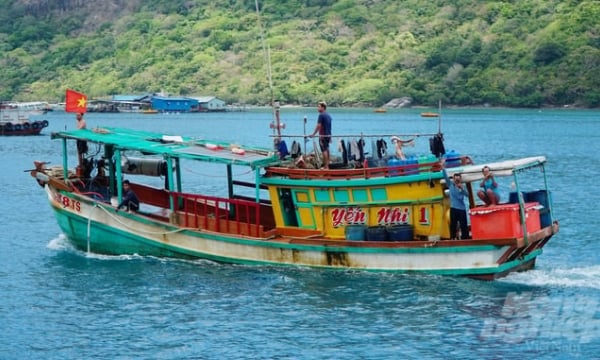
(VAN) 'The IUU yellow card must lead to sustainable fisheries, with increased aquaculture and reduced exploitation,' Minister Le Minh Hoan reflected.
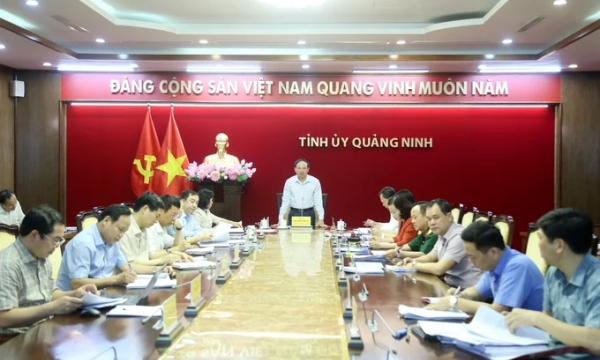
(VAN) Quang Ninh's policy of attracting FDI investment will select investors, taking quality, efficiency, technology, and environmental protection as evaluation criteria.
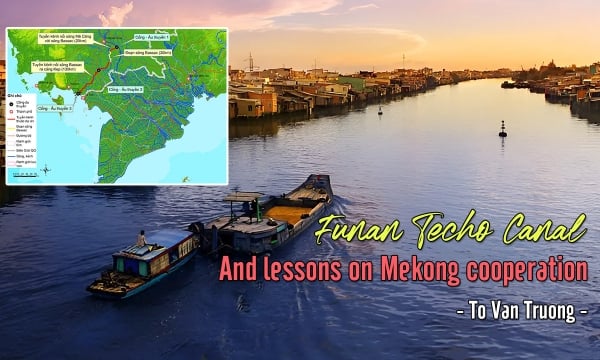
(VAN) Concerns regarding the Funan Techo canal, as expressed by certain experts at the Can Tho meeting, are indeed reasonable, yet they should be articulated without exaggeration.
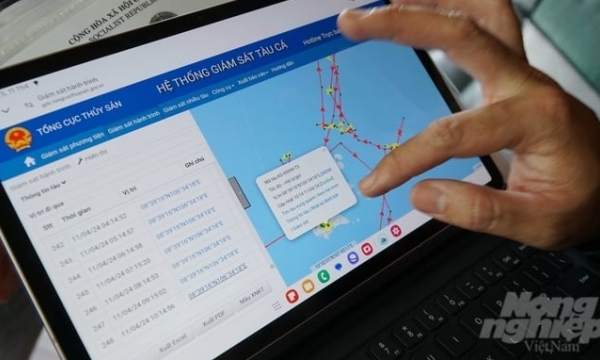
(VAN) Ba Ria - Vung Tau province is facing considerable challenges concerning the rapid and coordinated implementation of electronic fishing logbooks and origin tracing.

(VAN) There are a total of 12,000 OCOP products rated as 3-star or above, over 6,500 OCOP entities, around 78% of communes have successfully met the new rural requirements.